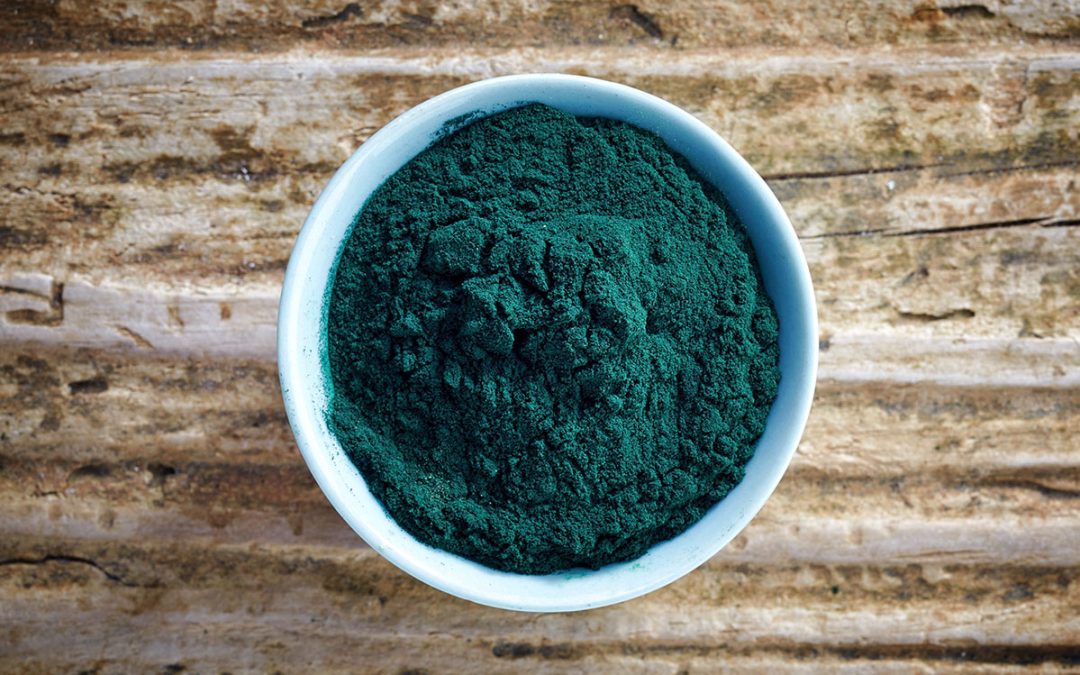Spirulina is a prokaryotic cyanobacterium that has been commercially produced for over thirty years for uses including: fish food, vitamin supplements, food dyes, aquaculture, pharmaceuticals and nutraceuticals. Approximately 3,000 tons dry weight is currently produced annually in the United States, Thailand, India, Taiwan, China, Pakistan, and Burma.
This algae is thought of as a super food and is widely grown, primarily in specifically designed raceway ponds, to meet the current demand. Spirulina is a rich source of nutrients such as B vitamins, phycocyanin, chlorophyll, vitamin E, omega 6 fatty acids and numerous minerals. Spirulina is 60-70% protein by weight (including many amino acids) and contains up to 10 times more beta-carotene than carrots per unit mass.
Spirulina has assisted in health areas like weight loss, diabetes, high blood pressure and hypertension. It has well documented antiviral, and anticancer properties. Spirulina can also enhance the phagocytic activity in macrophages and produce antigen-specific antibody production to help treat depression and attention-deficit hyperactivity disorder.
Spirulina positively affects cholesterol metabolism by increasing HDL levels, which can lead to healthy cardiovascular functions. Romay et al. described the antioxidant and anti-inflammatory properties of C-phycocyanin, which is a prevalent pigment in Spirulina. Tsuchihashi et al. showed a significant increase in the bacteria Lactobacillus in rats following Spirulina amendments in their diet; which if occurred in humans would improve digestion, food absorption, and stimulate the immune system to help fight infections.
Like Chlorella, current methodologies for growing Spirulina, and outdoor raceways in particular, have been shown to be susceptible to toxins associated with contamination from other algae species. In addition, the non-controlled outdoor growing environment can lead to elevated concentrations of unwanted elements such as mercury.

